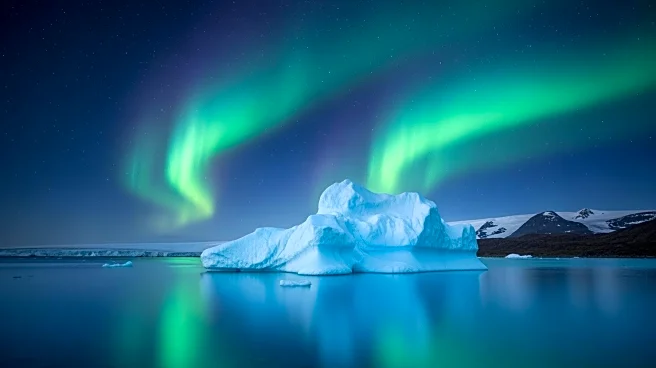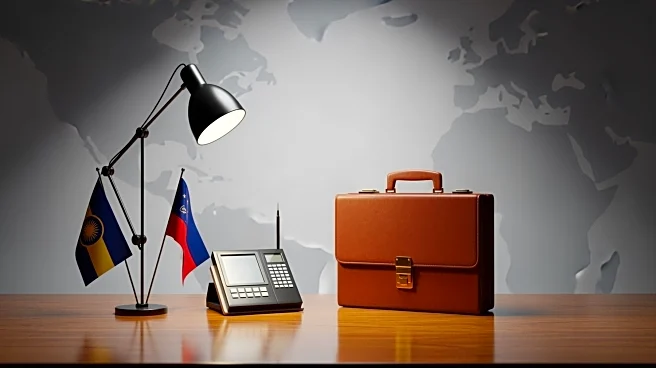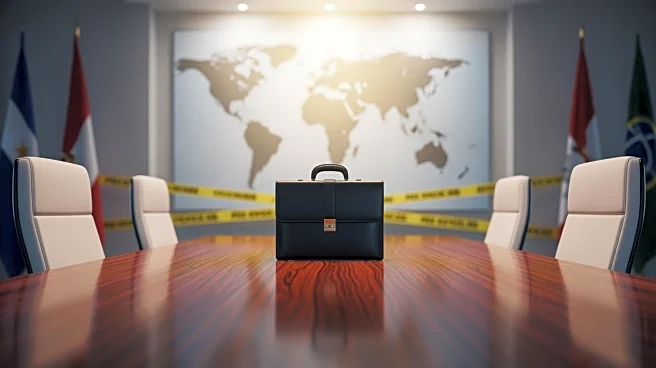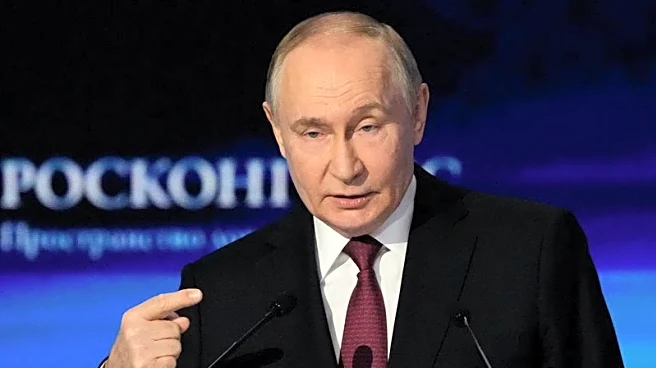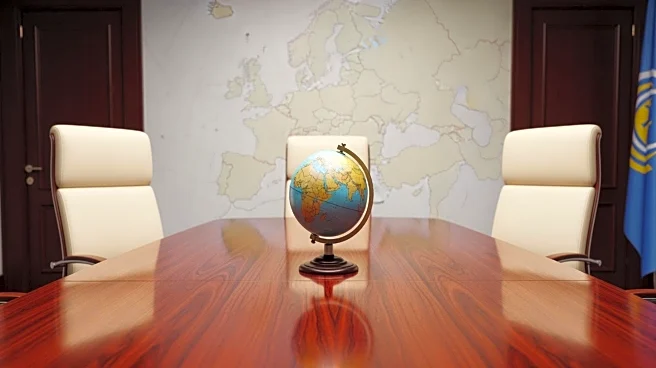What's Happening?
Prime Minister Kristrún Mjöll Frostadóttir of Iceland has announced plans to enhance the country's role in the Arctic without resorting to militarisation. Speaking at the Arctic Circle Assembly in Reykjavik,
Frostadóttir emphasized the increased importance of Arctic policy due to global tensions. She highlighted Iceland's reliance on NATO for defense and dismissed the idea of establishing a national military. Instead, Frostadóttir advocates for strengthening Iceland's security through diplomacy and cooperation, positioning the country as a strategic North Atlantic hub. She called for closer ties with Greenland, the Faroe Islands, and North America, and emphasized the importance of maintaining principles in dialogues with Russia.
Why It's Important?
Iceland's decision to focus on diplomacy rather than militarisation in the Arctic region is significant in the context of rising global tensions. By rejecting the establishment of a national military, Iceland is prioritizing peaceful cooperation and strategic partnerships, which could influence regional stability. This approach may benefit Iceland economically and politically, as it positions the country as a key player in Arctic diplomacy. The emphasis on collaboration with neighboring regions and North America could enhance Iceland's influence in international discussions, potentially leading to increased investment and development opportunities.
What's Next?
Iceland's focus on diplomacy and cooperation in the Arctic region may lead to new partnerships and initiatives aimed at addressing regional challenges. The country's strategic position could facilitate dialogues on environmental issues, resource management, and security concerns. As Iceland strengthens ties with Greenland, the Faroe Islands, and North America, there may be opportunities for collaborative projects and investments. Additionally, Iceland's role as a hub for communication could lead to increased involvement in international forums and discussions, shaping the future of Arctic policy.
Beyond the Headlines
Iceland's approach to Arctic policy highlights the ethical and cultural dimensions of regional cooperation. By prioritizing diplomacy over militarisation, Iceland is setting an example for peaceful conflict resolution and sustainable development. This strategy may influence other Arctic nations to adopt similar approaches, fostering a culture of collaboration and mutual respect. The long-term implications could include enhanced environmental protection, improved resource management, and strengthened regional security, contributing to global stability.
